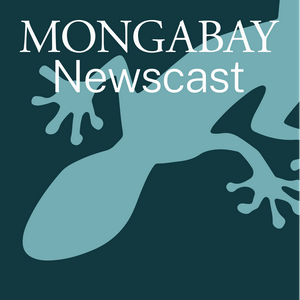National Geographic photographer Kiliii Yuyän returns to the Mongabay Newscast to share his experience creating his new book, Guardians of Life: Indigenous Knowledge, Indigenous Science, and Restoring the Planet from specialty publisher Braided River. This book documents the traditional ecological knowledge (TEK) of nine Indigenous communities worldwide, featuring contributions and essays from many members of these communities, along with Yüyan's own photography.
TEK, Yüyan says, isn't exactly traditional so much as it is ecological knowledge that is place-based. While it draws on thousands of years of knowledge, it also innovates in society as we know it, and can offer social, cultural and ecological benefits that neoliberal economics does not.
Yüyan highlights that some of the most significant environmental victories of the past few years, such as the removal of the Klamath River dams in the United States — the largest dam removal project ever — were led by Indigenous people. Yüyan's imagery captures the essence of the decades it took for Lisa Moorehead-Hillman, Leaf Hillman and others to advocate for their removal.
"I think what the great power of the book is in a lot of ways is the power of photography … actually seeing it. That this is what it means when we're talking about what is shamanism, what does it mean when you remove a dam … and you see it in people's faces."
Please take a minute to let us know what you think of our podcast, here.
Mike DiGirolamo is the host & producer for the Mongabay Newscast based in Sydney. Find him on LinkedIn and Bluesky.
Image Credit: Lisa Morehead-Hillman and Leif Hillman, both Karuk, celebrate the removal of the dams on the newly exposed reservoir floor in 2024. The former head of the Karuk Natural Resources Department, Leif spent two decades working with other Indigenous groups, environmental organizations and government officials to bring back the Klamath River. Image courtesy of Kiliii Yüyan.
—-
Timecodes
(00:00) What is traditional ecological knowledge?
(08:00) When values and governance go together
(17:38) Why and when hunters share their bounty in Greenland
(27:26) In Mongolia ceremonies are conservation
(39:12) How to get a dam removed
(46:08) Why the buffalo is the best environmentalist


